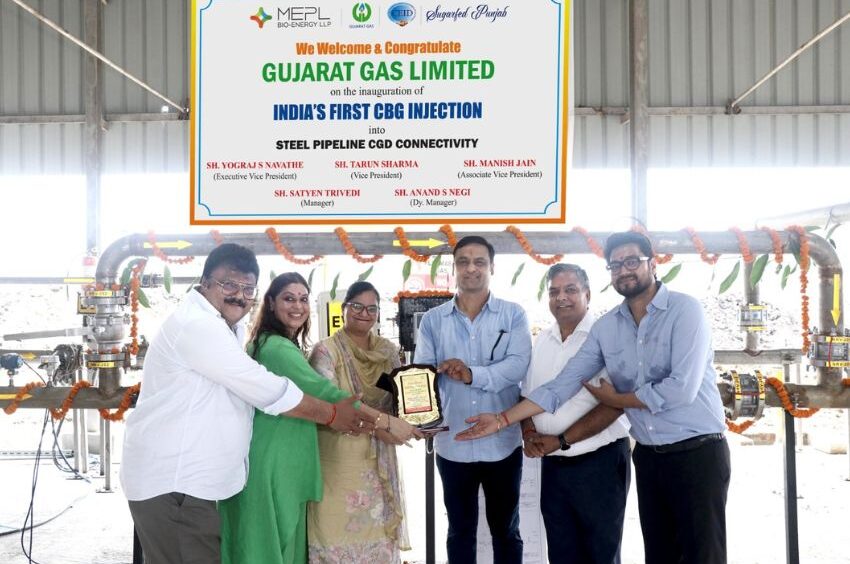India’s First Steel Pipeline-Integrated CBG Plant Commissioned In Punjab

CEID Consultants sets new benchmark for CBG integration into city gas networks
India has commissioned its first compressed biogas (CBG) plant connected directly to a City Gas Distribution (CGD) network through a steel pipeline. The facility, located in Batala, Gurdaspur, Punjab, was developed by CEID Consultants and Engineering, and is integrated with the CGD network operated by Gujarat Gas Ltd.
The plant enables the supply of CBG directly into the city gas system, replacing the earlier method of transportation via cascades using cylinders. This transition is expected to improve supply efficiency and reduce logistics-related costs.
This project introduces a structured approach to CBG integration by establishing technical guidelines related to pipeline design, safety protocols, metering, pressure regulation, and gas quality management. These standards are intended to serve as a reference for future CBG plants planned under MEPL Bio-energy and other operators.
Previously, the MEPL Bio-energy facility had started CBG offtake using MDPE pipelines. The current integration through a steel pipeline represents an infrastructure upgrade designed to support continuous gas flow and align with CGD standards.
“We are pleased to have completed India’s first CBG offtake facility with steel pipeline injection into a CGD network,” said Prince Gandhi, Founder & CEO of CEID Consultants. “This project demonstrates an alternative model for CBG delivery, aiming to improve operational efficiency.”
The plant supplies clean energy in the form of piped natural gas (PNG) to residential, commercial, and industrial users and also supports compressed natural gas (CNG) filling stations in the region. Integration into the CGD grid is expected to simplify logistics, reduce handling requirements, and improve last-mile delivery.
Alignment with Clean Energy Goals
The initiative is in line with the Government of India’s Sustainable Alternative Towards Affordable Transportation (SATAT) programme, which promotes CBG as a clean fuel for mobility and urban use. It also aligns with efforts to develop a gas-based economy and support state-level renewable energy objectives.
The steel pipeline-based model is expected to be implemented in upcoming CBG projects under MEPL and could be adapted by other developers as the sector expands.






































































































































































































































































































































































































































































































































































































































































































































































































































































































































































































































































































































































































